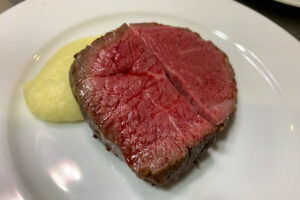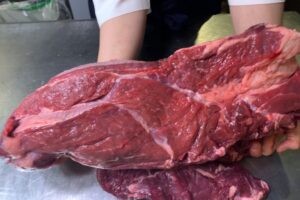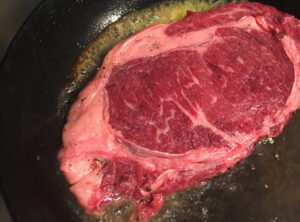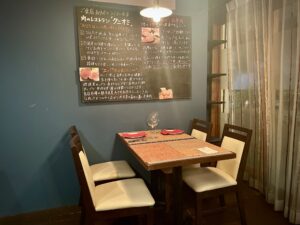Lean Wagyu in Tokyo – A New Luxury Trend (2025)

When most people think of Wagyu, they picture the famously marbled Kuroge Washu—the black-haired breed that accounts for nearly 98% of all Wagyu beef in Japan. Known for its rich fat and melt-in-your-mouth texture, it has become the global standard for Japanese beef.
But recently, a new preference has emerged among health-conscious luxury travelers and Japanese gourmets: lean Wagyu, especially from the Japanese Brown breed known as Akaushi. At first glance, its bright red color may resemble the lean beef found in Western countries—but the similarities stop there. Akaushi offers a completely different experience: the aroma is more elegant, the texture offers gentle resistance without toughness, and each bite delivers a rich umami that lingers. For those seeking depth over fat, this is a new kind of Wagyu worth discovering.
Not All Wagyu Is the Same: The Rise of Lean Cuts
While most tourists in Japan still seek out the heavily marbled cuts of traditional Wagyu beef, a growing segment of diners—especially health-conscious food lovers and affluent Japanese locals—are turning their attention to something different: lean Wagyu. This variety is prized not for fat, but for its clean, deep umami flavor and refined texture. It provides all the luxury of premium beef without the heaviness, making it ideal for those who want a high-end dining experience that’s both satisfying and balanced. For many, it’s a more authentic and memorable way to enjoy Japanese beef.
Kumamoto Akaushi: The Rare Breed Behind the Trend

Kumamoto Akaushi (also known as “Akaushi beef”) is a rare and premium breed of Japanese Brown Wagyu, raised primarily in the untouched grasslands of Aso, Kumamoto Prefecture. Unlike mass-produced Wagyu, Akaushi cattle are reared in small numbers—representing just 1.3% of all Wagyu beef in Japan. This rarity alone makes it one of the most sought-after meats for true connoisseurs.
The cattle roam freely across the expansive fields of Aso, benefiting from the area’s fresh mountain air, mineral-rich water, and clean pastures. This natural, low-stress environment not only enhances animal welfare but also contributes to superior meat quality—characterized by its vibrant red color, fine texture, and a rich, umami-packed flavor. For travelers and Japanese gourmets alike, Kumamoto Akaushi represents a new gold standard in Wagyu that balances purity, health, and luxury.
What Makes Lean Wagyu Special?

Lean Wagyu contains about half the fat of traditional marbled Wagyu, but none of the flavor is lost. In fact, many connoisseurs argue that the taste is more intense and pure. It also pairs better with wine and doesn’t leave a heavy aftertaste, making it ideal for refined dining.
Where to Try It in Tokyo (and Why It’s So Hard to Find)

Very few restaurants in Tokyo specialize in lean Wagyu. Most focus on fatty cuts to meet tourist expectations, often showcasing marbled beef with rich sauces. But for those looking for something different—lighter, more refined, and deeply flavorful—there is a better option.
Tucked away in the stylish Ebisu district, a hidden gem offers a completely unique Wagyu experience. At QUNIOMI, a boutique Wagyu restaurant specializing in Kumamoto Akaushi beef, each dish is prepared with precision and elegance to highlight the meat’s natural flavor and texture.
This is not a steakhouse with thick cuts drowning in sauce, but a place where refined techniques—many learned through classical training in France—are applied to bring out the pure umami of lean Wagyu. With a carefully selected wine list and a calm, intimate atmosphere, QUNIOMI offers one of the most authentic ways to enjoy high-end Japanese beef in Tokyo.
Book Your Experience: Taste What Most Tourists Miss
If you’re searching for the best Wagyu in Tokyo, especially in the stylish Ebisu area, QUNIOMI offers a luxury Wagyu experience unlike any other. Unlike typical Wagyu restaurants in Japan that focus on marbled beef, this hidden gem redefines what Ebisu Wagyu can be. It’s one of the rare places where lean Wagyu in Japan is celebrated with refinement and care.